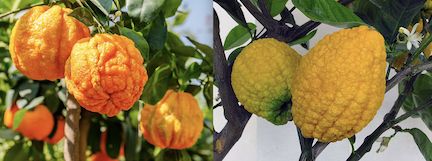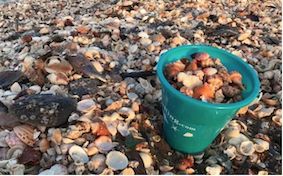When Life Gives You Circumstances, Don't Make Lemons
It’s as classic a cliché as ever spoken — “When life gives you lemons, make lemonade.”
But there may be something you don't know about lemons. Though they have been around for millennia, they do not occur in nature “naturally.” Rather, they have been hybridized as a cross between a bitter orange and a citron. In other words, lemons are man made.
As suggested by internet blogger J. Cormack, since lemons were selectively bred by humans, it could be said that life doesn’t give us lemons, but rather we make lemons out of life.

All too often, by our own poor attitudes, actions, and choices, we end up twisting life’s circumstances into something bitter, something sour.
So, next time we’re tempted to blame “life” for our problems, we should take a good look in the mirror. It may not be life throwing those bitter circumstances our way. They may all too often be of our own making.
Moral of the story ... When life gives you circumstances, don't make lemons!
“Do not be deceived: God is not mocked, for whatever one sows, that will he also reap. For the one who sows to his own flesh will from the flesh reap corruption, but the one who sows to the Spirit will from the Spirit reap eternal life” (Galatians 6:7-8, ESV).
“I call heaven and earth to witness against you today, that I have set before you life and death, blessing and curse. Therefore choose life, that you and your offspring may live, loving the LORD your God, obeying his voice and holding fast to him, for he is your life and length of days, that you may dwell in the land that the LORD swore to your fathers, to Abraham, to Isaac, and to Jacob, to give them.”” (Deuteronomy 30:19-20, ESV).
“But the fruit of the Spirit is love, joy, peace, patience, kindness, goodness, faithfulness, gentleness, self-control; against such things there is no law (Galatians 5:22-23, ESV).
The First and Last Letters Matter Most
Aoccdrnig to rscheearch at an Elingsh uinervtisy, it deosn't mttaer in waht oredr the ltteers in a wrod are, the olny iprmoetnt tihng is taht the frist and lsat ltteer is at the rghit pclae. The rset can be a toatl mses and you can sitll raed it wouthit a porbelm. Tihs is bcuseae we do not raed ervey lteter by istlef but the wrod as a wlohe.

There's a lesson to be gleaned from this little exercise. We must learn to read life the way we read words on a page, resisting the temptation to focus too much on the individual events, choosing instead to take it all in as a whole.
Jesus claims to be the Alpha and the Omega, the Beginning and End. Among other things, this suggests that the beginning and the end of all things are exactly as they should be.
Unfortunately, it's in the middle where we live, and it's a jumbled mess! But God has not left us to wallow in the chaos and confusion. By making sure the beginning and the end of all things are what they should be, God restores meaning to what's in the middle.
When we read life as a whole, the chaos in the middle preserves its proper meaning.
"I am the Alpha and the Omega, the First and the Last, the Beginning and the End" (Revelation 22:13).
Illustration Exchange
Scrutinizing Seashells
My two-year-old granddaughter watched with great interest as her big sister and I hunted for seashells during a family day at the beach. When she asked if she could try, I plopped her down on a pile of shells and she went right to work. Immediately, without any instructions or coaching, she held up one seashell at a time and scrutinized it. Those that passed her inspection went into the bucket but those that didn't were tossed over her shoulder. I marveled over her decisiveness and I wondered what possible criteria does a two-year-old use to discern the worthiness of one shell over another.
So, I stole a peek at her booty. There were a number of perfect shells in her bucket but there were far more defective shells; shells with holes in them; shells that had been worn by the surf; shells that were chipped and broken; shells that would never have made it into my bucket. There didn't appear to be a rhyme or a reason for what made it into my granddaughter's bucket. Rather, the collection seemed to be random. Like someone had just scooped them up and dumped them in there.

If the ways of a two-year-old are mysterious, how much more are the ways of God?
Have you ever looked into the bucket of things that make up your life and wondered, "How'd that get in there?" Are there things in your life that you would have never selected for yourself? Does your life ever feel random to you, with no rhyme or reason to it? Like someone just scooped them up and dumped them in there?
But that isn't at all the case. Every shell in your bucket has been handpicked; every shell has been scrutinized; every shell has passed God's inspection. All the details of your life, your circumstances and the people you know have passed the mysterious criteria of the Eternal One, of God Himself.
Who can possibly begin to see what God sees, or judge things by His criteria? No, ours is not to understand what God places in our bucket. Ours is to trust that each shell has been placed there with some purpose.
If you can't understand the mind of a two-year-old, how do you expect to understand the mind of God?
"Oh, how great are God's riches and wisdom and knowledge! How impossible it is for us to understand his decisions and his ways!" (Romans 11:33, NLT).